Introduction

Visualize standing at the edge of a vast and intricate landscape, each horizon bending with nuances about our existence and the fabric of consciousness. How do we begin to comprehend the reality that surrounds us and lives within us? The understanding of reality—this immense concept—touches every aspect of our lives, shaping our decisions, our philosophies, and the very core of our human experience.
As you read this, consider yourself embarking on a philosophical journey that delves deep into the nature of reality and consciousness. This article aims to guide you through a curated selection of essential books that offer various lenses through which we can view these profound topics. Each book is a portal into different realms of understanding, providing unique perspectives that collectively enrich our comprehension of these vast subjects.
Why is this exploration crucial? In a world brimming with diverse and often conflicting interpretations of reality, gaining a multi-faceted understanding is more than an academic exercise—it’s a vital part of understanding ourselves and enhancing our interactions with the world around us. It challenges us to question, reflect, and grow as individuals.
To stir your curiosity and set the stage for what follows, consider this question: “If reality is a construct, shaped by our senses and perceptions, can we ever know the true essence of existence?” Or ponder this quote by renowned philosopher Ludwig Wittgenstein, “The limits of my language mean the limits of my world.”
Let this article be your guide and companion in unraveling the layers of reality and consciousness. Each section, each book reviewed, offers you insights and knowledge that promise not just to inform but transform your understanding of these complex themes. Engage directly with these ideas, challenge them, and allow them to challenge you. You are not just reading—you are part of a conversation that could profoundly alter your perception of reality itself.
Understanding Reality and Consciousness
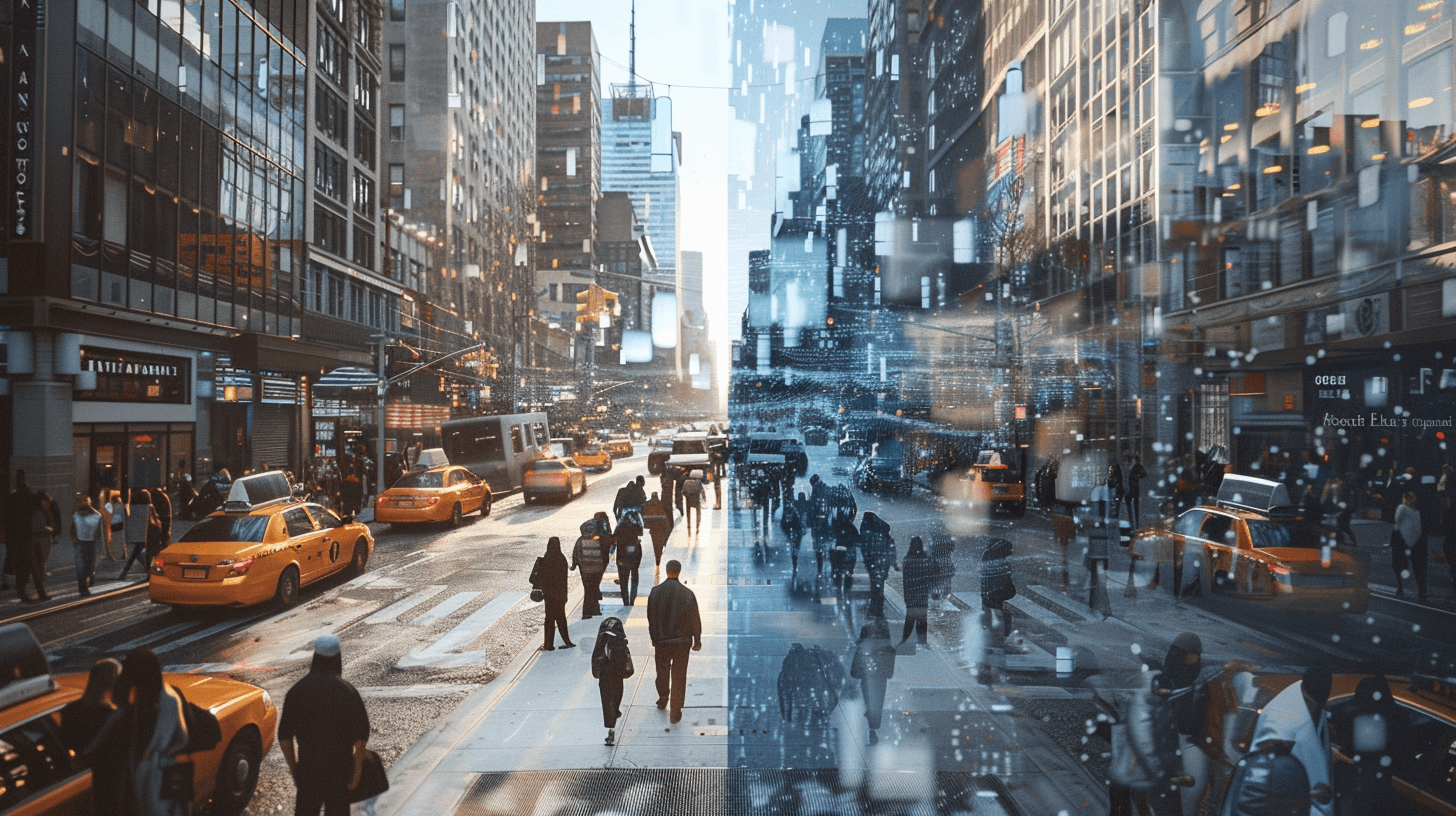
What is reality? What is consciousness? These are questions that have not only puzzled but also fascinated thinkers across disciplines—from philosophers to scientists to spiritual leaders. Reality can be described as the sum of all that is real, tangible, and verifiable, but it can also extend into perceptions that differ from one person to another. Consciousness, often intertwined with reality, refers to the awareness of one’s own existence, sensations, and thoughts, stretching into the deeper realms of self-awareness and existential recognition.
Throughout history, these topics have been explored in myriad ways. Philosophers like Plato and Descartes delved into the concept of reality with questions about existence and the nature of truth, while modern science, through quantum mechanics and neuroscience, has begun to unravel how our perceptions shape our realities and how our brains manifest consciousness. Spirituality offers another layer, with practices and beliefs that interpret consciousness and reality in ways that transcend physical explanations, suggesting a connection to something greater than ourselves.
In today’s fast-paced, technology-driven world, these discussions are not just academic but have practical implications affecting everything from the development of AI to mental health therapies. How does your understanding of reality influence your trust in virtual realities or AI decisions? Do your views on consciousness affect your approach to mindfulness or psychological well-being?
Now, consider how these profound concepts impact your daily life. How do your beliefs about reality shape your interactions with technology? How does your understanding of consciousness influence your mental health practices or spiritual rituals? This exploration is not merely an academic exercise; it is a journey into understanding the very essence of your experiences and interactions.
As we explore deeper into the books discussed in this article, let these questions linger in your mind. This is not just a discussion; it’s an invitation to challenge and broaden your perspective on reality and consciousness. Engage with these ideas, reflect on them, and see how they resonate with your own life and beliefs. This section sets the stage for a deeper exploration into philosophical, scientific, and spiritual insights that await in the subsequent chapters of this narrative.
The Philosophers' Insights
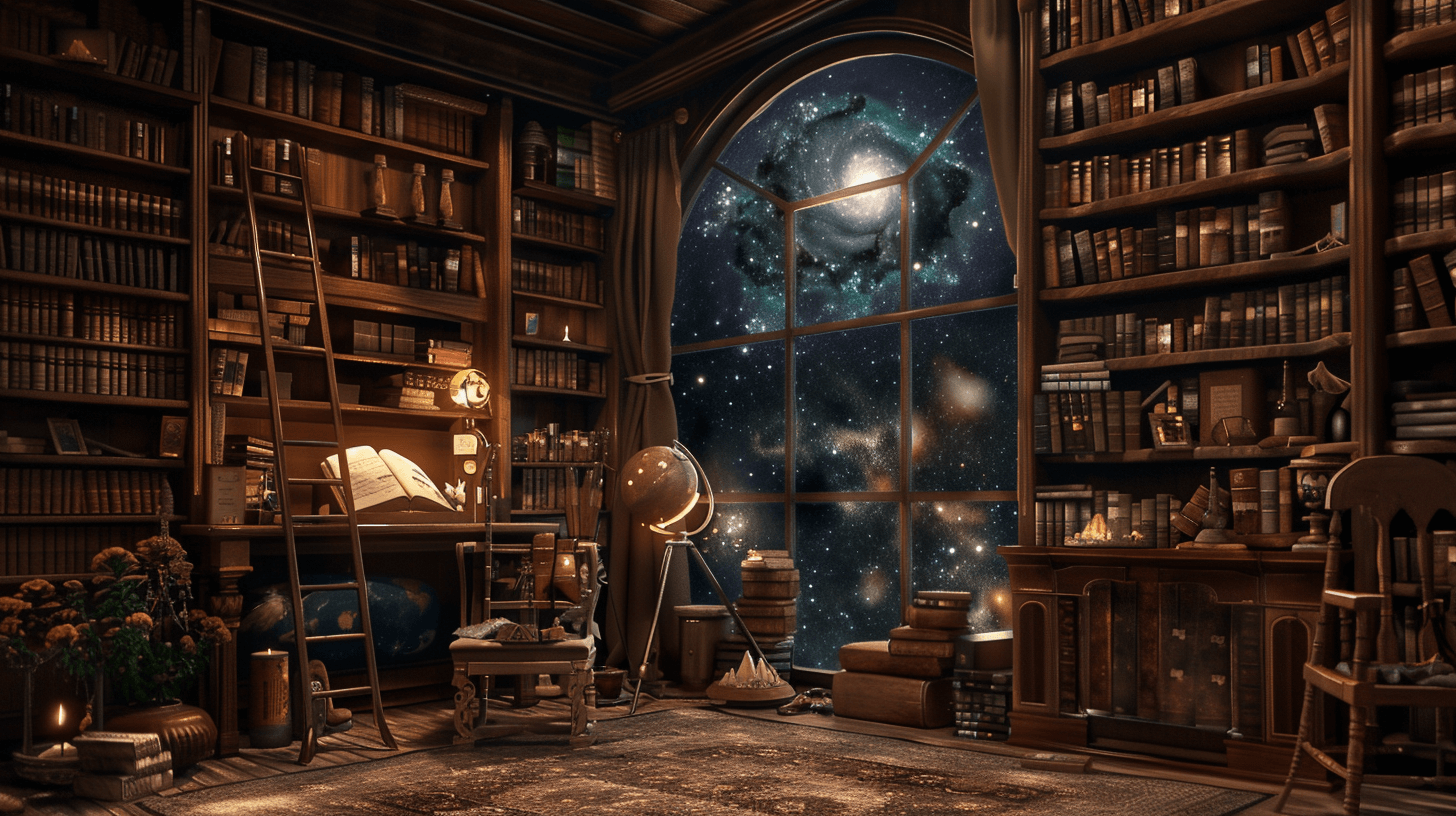
As we embark on this intellectual journey through “Exploring the Depths: Essential Books on the Nature of Reality and Consciousness,” it’s crucial to revisit the roots laid by the foundational philosophers whose thoughts have shaped centuries of discourse. Plato, Descartes, and Kant not only questioned the very fabric of reality but also offered frameworks that continue to influence modern philosophical inquiries.
Plato introduced the Theory of Forms, proposing that the material world is only a shadow of the true reality, which consists of unchangeable, eternal forms. His work, particularly in “The Republic,” provides a profound exploration of how perceptions of reality can be mere reflections of the true essence of things.
René Descartes, in his Meditations on First Philosophy, introduced a method of doubt now known as Cartesian skepticism, leading to his famous declaration, “Cogito, ergo sum” (I think, therefore I am). Descartes’ dualism distinguishes between the mind, a realm of consciousness and reality, and the body, the physical world.
Immanuel Kant took these discussions further in his Critique of Pure Reason, where he distinguished between phenomena (the appearances which we can perceive) and noumena (things as they are in themselves, which are beyond our sensory experience). Kant’s work challenges us to consider the limits of our perceptual faculties and the unseen realities beyond them.
Now, imagine these classical theories being confronted with today’s technological advancements. What would Descartes think of virtual reality, where digital worlds challenge his ideas of thinking and existence? How would Kant’s categories of understanding react to quantum physics, where particles exist in states that defy traditional notions of phenomena?
Transitioning into the modern era, philosophers like Daniel Dennett and David Chalmers have built upon these foundations. They probe deeper into consciousness and reality, exploring how neuroscience and cognitive science align or conflict with earlier philosophical theories. Their works, such as Dennett’s “Consciousness Explained” and Chalmers’ “The Conscious Mind,” attempt to bridge the gap between subjective experiences and objective reality, questioning if and how we can know the world as it truly is.
As you reflect on these philosophical evolutions, consider how they resonate with your own understanding of reality. How might Dennett’s views on consciousness as a biological phenomenon challenge or enrich your perspective? How does Chalmers’ concept of the ‘hard problem’ of consciousness invite you to think about the mind-body dilemma in new ways?
This section is not merely academic; it’s a call to engage with these ideas actively. As you turn the pages of the books discussed, see them as an invitation to join an ongoing conversation—a dialogue with thinkers past and present, who like you, have pondered these timeless questions about the nature of reality and our place within it.
The Scientific Approach
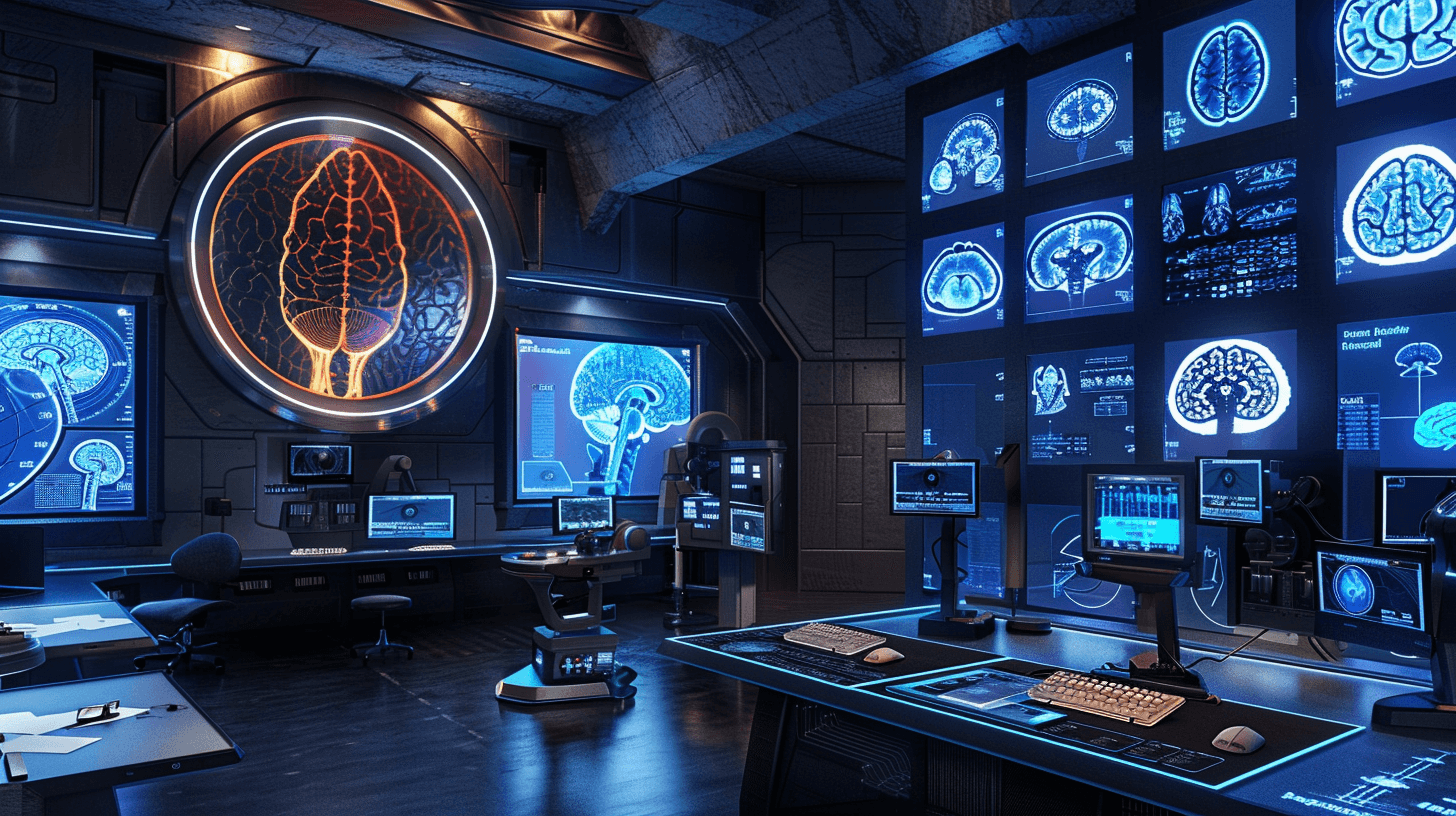
In this exploration of the scientific dimensions of reality and consciousness, we delve into the contributions from neuroscience, psychology, and physics—fields that offer profound insights into the nature of our existence and the universe itself. This journey through scientific literature provides a unique lens to understand complex concepts that influence everything from technology to personal wellness.
Neuroscience and Consciousness Neuroscience has played a pivotal role in unraveling the mysteries of consciousness. Books like “Consciousness Explained” by Daniel Dennett and “The Quest for Consciousness” by Christof Koch provide detailed accounts of how the brain’s neural networks process sensory information to create what we experience as consciousness. These works explore theories suggesting that consciousness arises from the intricate interactions of neurons, challenging the notion that consciousness is merely a passive occurrence. Consider how the synchronization of neural activities could correspond to moments of heightened awareness and cognitive functions.
Quantum Mechanics and the Nature of Reality Physics, particularly quantum mechanics, brings forward a startlingly different perspective on reality. In books such as “The Quantum Universe” by Brian Cox and Jeff Forshaw, and “Quantum Enigma” by Bruce Rosenblum and Fred Kuttner, we see how fundamental particles exist in states of probability until measured—challenging the very fabric of classical determinism. The principles of entanglement and superposition introduce a scenario where particles can be intricately linked regardless of the distance separating them, suggesting a level of interconnectedness that transcends traditional physical laws.
Psychology’s Role in Understanding Consciousness Transitioning to psychology, this discipline merges closely with neuroscience to explain how we perceive and construct reality. Titles like “Phantoms in the Brain” by V.S. Ramachandran and “The Illusion of Conscious Thought” by Peter Carruthers provide insights into how cognitive processes shape our experience of the world. These books examine the role of memory, attention, and perception in forming our consciousness, illustrating that our grasp of reality is as much about what happens inside our heads as it is about the external world.
Engaging the Reader As you engage with these theories, ask yourself: How does the uncertainty introduced by quantum mechanics influence your perception of free will? Are your thoughts and decisions truly your own, or are they the result of complex, deterministic processes within your brain influenced by past experiences and sensory inputs?
Reflect on how the integration of these scientific insights with philosophical and spiritual interpretations can enrich your understanding of reality. Consider how neuroscientific insights into consciousness could transform approaches to mental health, enhancing therapies and interventions that target the underlying neurological substrates.
Spiritual Perspectives

In our journey to explore the depths of reality and consciousness, we turn now to the spiritual and mystical viewpoints that offer a profound counterbalance to the scientific and philosophical analyses discussed earlier. This section will examine seminal texts from various religious and spiritual traditions, shedding light on how these perspectives enrich our collective understanding of existence.
We begin with Fritjof Capra’s “The Tao of Physics,” a pioneering work that bridges the gap between Eastern mysticism and Western science. Capra illustrates how principles from quantum physics resonate with the spiritual insights of Eastern traditions, suggesting a fundamental unity in the foundation of the universe. Next, Aldous Huxley’s “The Perennial Philosophy” offers a comparative study of world religions, highlighting shared themes and teachings about the nature of reality and the human experience of consciousness.
These books, among others, delve into concepts like the Buddhist notion of emptiness, which asserts that phenomena are devoid of an intrinsic, independent existence; and the Hindu concept of Maya, which teaches that the sensory world is an illusion obscuring our true spiritual nature. These ideas challenge our usual understanding of reality, proposing that what we perceive is not the complete picture of what truly is.
How might the spiritual concept of interconnectedness change your view of personal identity and existence? Reflect on this as you consider the implications of a reality where all is one, and separation is merely an illusion—a common thread in many spiritual traditions.
This exploration is not just an academic exercise but a call to broaden your perspective. As you engage with these spiritual teachings, consider how they resonate with your own experiences and beliefs about reality. The narratives and doctrines discussed in these books provide unique lenses through which we can view our existence and consciousness, offering insights that can transform our understanding of ourselves and the universe.
Integrating Knowledge
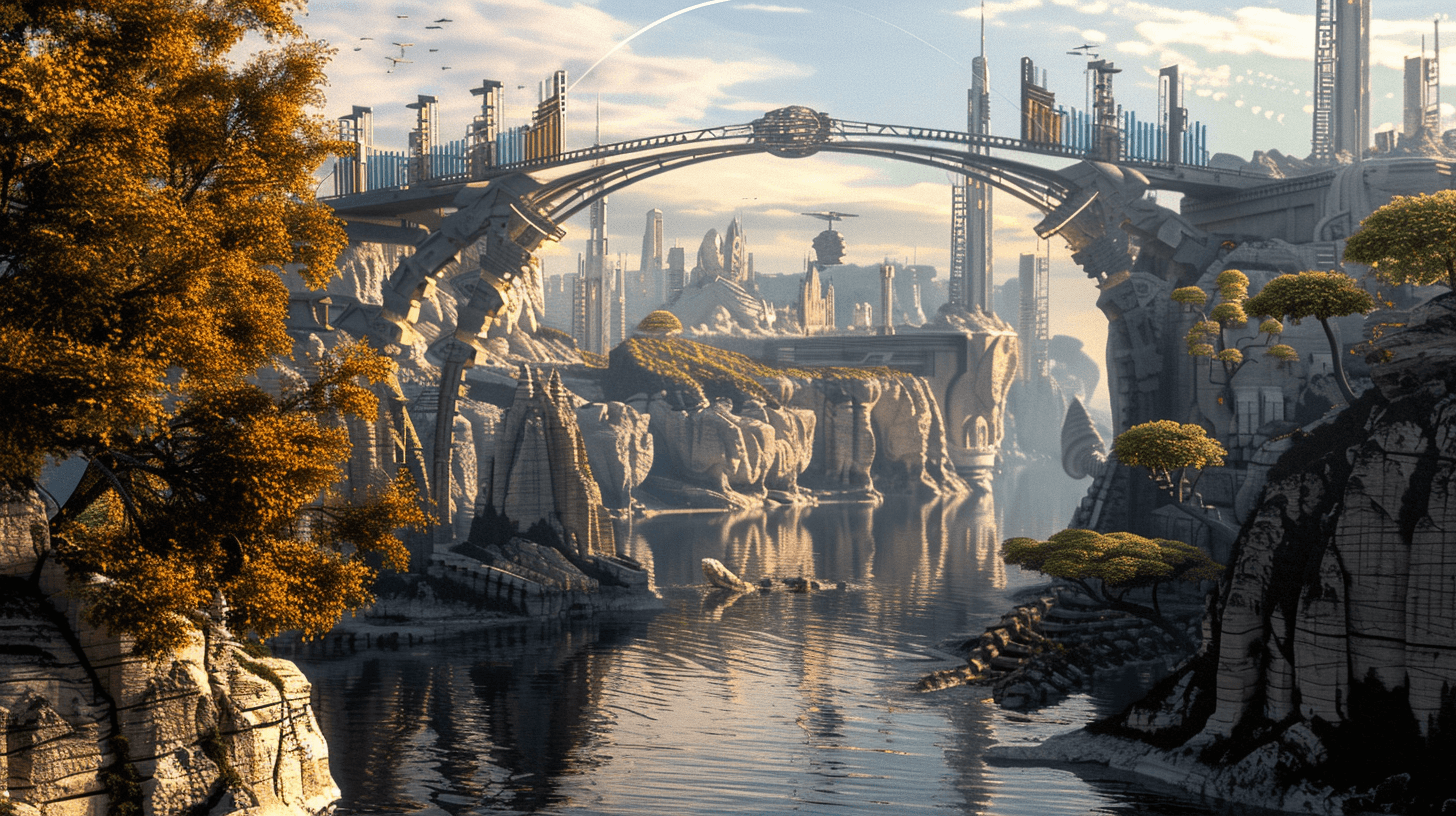
In this exploration of the nature of reality and consciousness, we’ve delved into philosophical debates, scientific theories, and spiritual teachings. Now, we’ll weave these threads together, showing how they can form a cohesive, well-rounded understanding that enhances both personal insight and everyday life.
Philosophy, science, and spirituality might seem at odds, but they often complement and enrich each other. Take, for example, Immanuel Kant’s notions of phenomena (what we can experience) and noumena (what exists beyond our sensory experience). These ideas align intriguingly with quantum physics, which suggests that particles exist in states of probability until observed. Both views challenge our everyday understanding of reality, resonating with spiritual teachings about the world being an illusion or Maya, as noted in Hindu philosophy.
How can you integrate these insights into your daily life? Start with mindfulness practices, which blend philosophical introspection with spiritual presence. This approach can help you cultivate a state of awareness that transcends the hustle of everyday life, allowing you to experience moments of clarity and connection that are supported by both spiritual teachings and psychological research.
Ethical living is another area where these insights can be practical. By understanding the interconnectedness emphasized in many spiritual traditions, alongside scientific insights into human behavior and philosophical ethics, you can craft a life that reflects a deep comprehension of how your actions impact others and the environment.
Consider how scientific inquiry might play a role in your personal growth. For instance, adopting a methodical approach to testing and refining your beliefs about reality could involve staying updated with the latest neuroscience research or engaging with philosophical discussions that challenge your viewpoints.
As you apply these ideas, think about the following: How can these philosophical insights enhance your understanding of your own consciousness? In what ways might embracing spiritual teachings about reality influence your relationships with others and the environment?
Book Reviews and Recommendations
In our quest to delve into the profound themes of reality and consciousness, we explore a selection of seminal works that traverse the realms of philosophy, science, and spirituality. These texts not only offer diverse perspectives but also enhance our understanding of these enigmatic concepts.
The Tao of Physics by Fritjof Capra Fritjof Capra, a physicist fascinated by the parallels between modern physics and Eastern mysticism, bridges these worlds in “The Tao of Physics”. Capra argues that the mystical traditions of the East and the scientific approaches of the West are not as distinct as they might seem, suggesting a profound underlying unity in the universe. This book is instrumental in illustrating how the dance of particles at the quantum level mirrors the mystical visions of cosmic unity found in Eastern philosophies.
Key Quote: “Physics leads us today to a world view which is essentially mystical, to a realization of the oneness of all nature.” Critical Analysis: While Capra’s interdisciplinary approach has been celebrated for its visionary perspective, some critics argue that his comparisons sometimes oversimplify complex scientific and philosophical ideas. However, the book’s strength lies in its ability to make complex ideas accessible and relevant, challenging readers to see the universe in a new light.
Consciousness Explained by Daniel Dennett Daniel Dennett, a renowned philosopher and cognitive scientist, tackles the elusive topic of consciousness with rigor and clarity. In “Consciousness Explained”, Dennett proposes that consciousness arises from physical processes within the brain, a series of interconnected biological events he describes as ‘multiple drafts’ of reality perceived by the brain. Key Quote: “Our minds are made of molecular machines, themselves mindless, and what consciousness seems to require, and certainly does in fact produce, is a level of control and discrimination that does not exist in the individual parts.” Critical Analysis: Dennett’s mechanistic view of consciousness has sparked debate, particularly among those who view consciousness as more than just physical processes. His work challenges spiritual perspectives that see consciousness as a non-material essence, making it a pivotal read for anyone interested in the crossroads of philosophy and neuroscience.
Reflective Question: How might Dennett’s scientific perspective on consciousness influence your understanding of your own mental processes?
Critique of Pure Reason by Immanuel Kant Immanuel Kant, in his monumental work “Critique of Pure Reason”, explores the limitations and capabilities of human reason in understanding the world. Kant distinguishes between the phenomena (the world as we experience it) and the noumena (the world as it is in itself), a foundational concept for many later philosophical inquiries into reality. Key Quote: “Thoughts without content are empty, intuitions without concepts are blind.” Critical Analysis: Kant’s rigorous analysis provides a robust framework for understanding the interplay between our sensory experiences and our conceptual insights. While some argue that his work is dense and challenging, its profound impact on both philosophy and the understanding of human cognition cannot be overstated.
Reflective Question: How does Kant’s philosophical exploration of reality challenge or reinforce your own perceptions of the world?
Each of these books offers a unique lens through which to explore the nature of reality and consciousness. By engaging with these texts, readers gain access to a multidimensional understanding of these concepts, informed by the rich intersections of philosophical thought, scientific discovery, and spiritual insight. As you reflect on these reviews, consider how integrating these diverse perspectives can enrich not only your intellectual pursuits but also your personal and spiritual growth.
Unlocking the Universe: A Concise Guide to 'The Tao of Physics
Conclusion: Unveiling the Layers of Reality and Consciousness
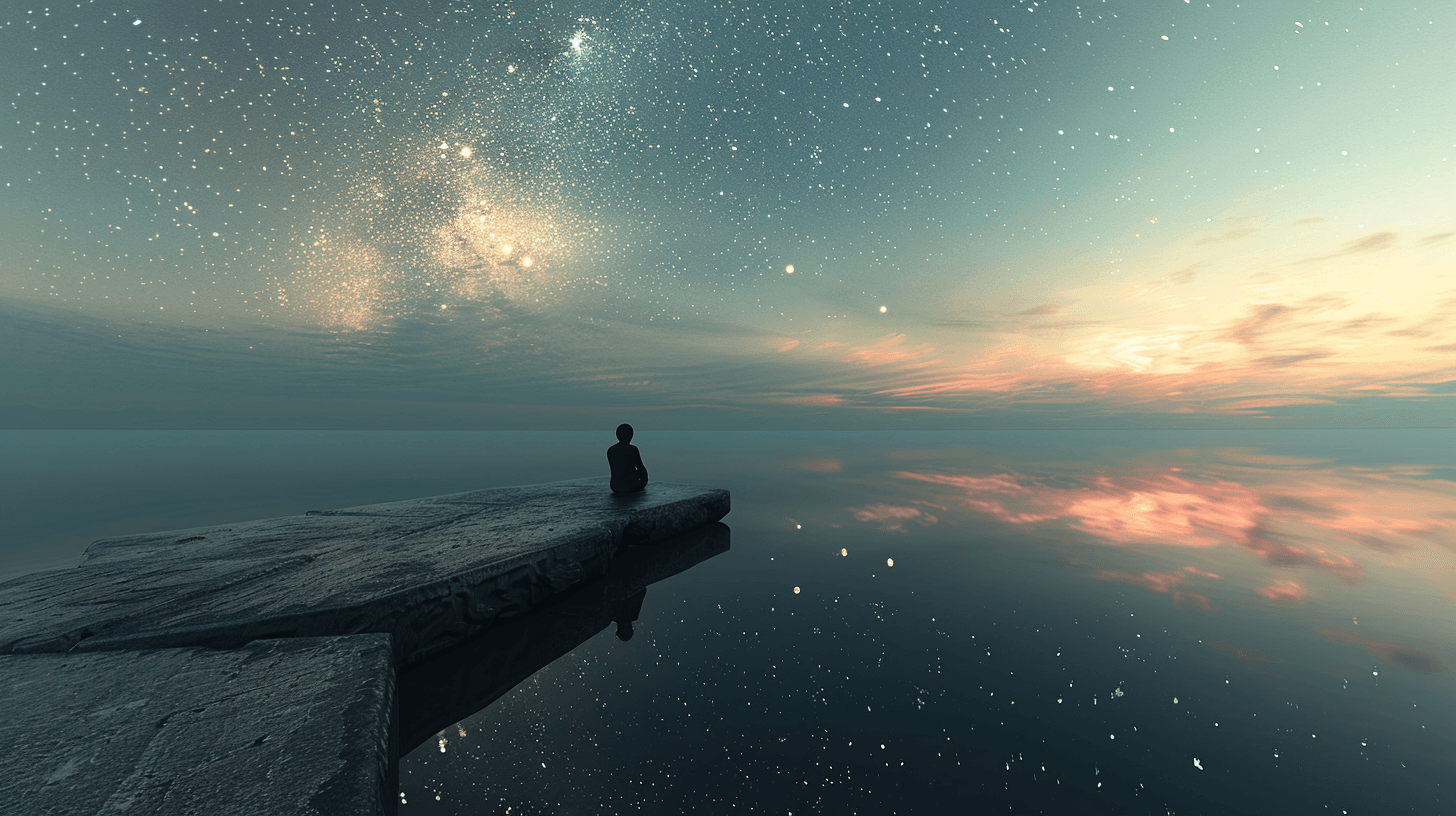
As we conclude our journey through “Exploring the Depths: Essential Books on the Nature of Reality and Consciousness,” we reflect on the profound insights offered by a spectrum of perspectives—philosophical, scientific, and spiritual. Each viewpoint not only deepens our understanding of the fundamental aspects of human existence but also interweaves to form a comprehensive tapestry that illustrates the complex nature of reality and consciousness.
From the philosophical ruminations of Kant and Descartes, which challenge our perceptions of existence and knowledge, to the groundbreaking scientific explorations in neuroscience and quantum mechanics, and the profound spiritual wisdom distilled through centuries of mystical tradition, these disciplines collectively enhance our understanding of what it means to be conscious beings. By integrating these diverse viewpoints, we not only broaden our own perspectives but also gain tools to navigate the complexities of the modern world.
The practical implications of these insights are vast. Understanding the layers of reality and consciousness can transform how we interact with others, make decisions, and approach societal challenges. For instance, recognizing the interconnectedness emphasized in both quantum physics and spirituality can foster a more compassionate approach to social and environmental issues. Similarly, the philosophical exploration of consciousness can inform ethical decision-making and leadership, encouraging a society that values deep reflection and thoughtful action.
Now, consider this: In what ways can expanding your understanding of reality and consciousness alter your approach to life’s challenges? How might a deeper integration of these philosophical, scientific, and spiritual insights transform our society for the better? As you ponder these questions, reflect on how the ideas discussed might influence your personal beliefs and actions going forward.
This article is not merely a conclusion but a beginning—a call to explore these themes further in your own life and community. Let the insights from these essential books serve as a guide to deeper inquiry and reflection. May your journey through the depths of reality and consciousness inspire not only personal growth but also a greater contribution to a more understanding and empathetic world.








